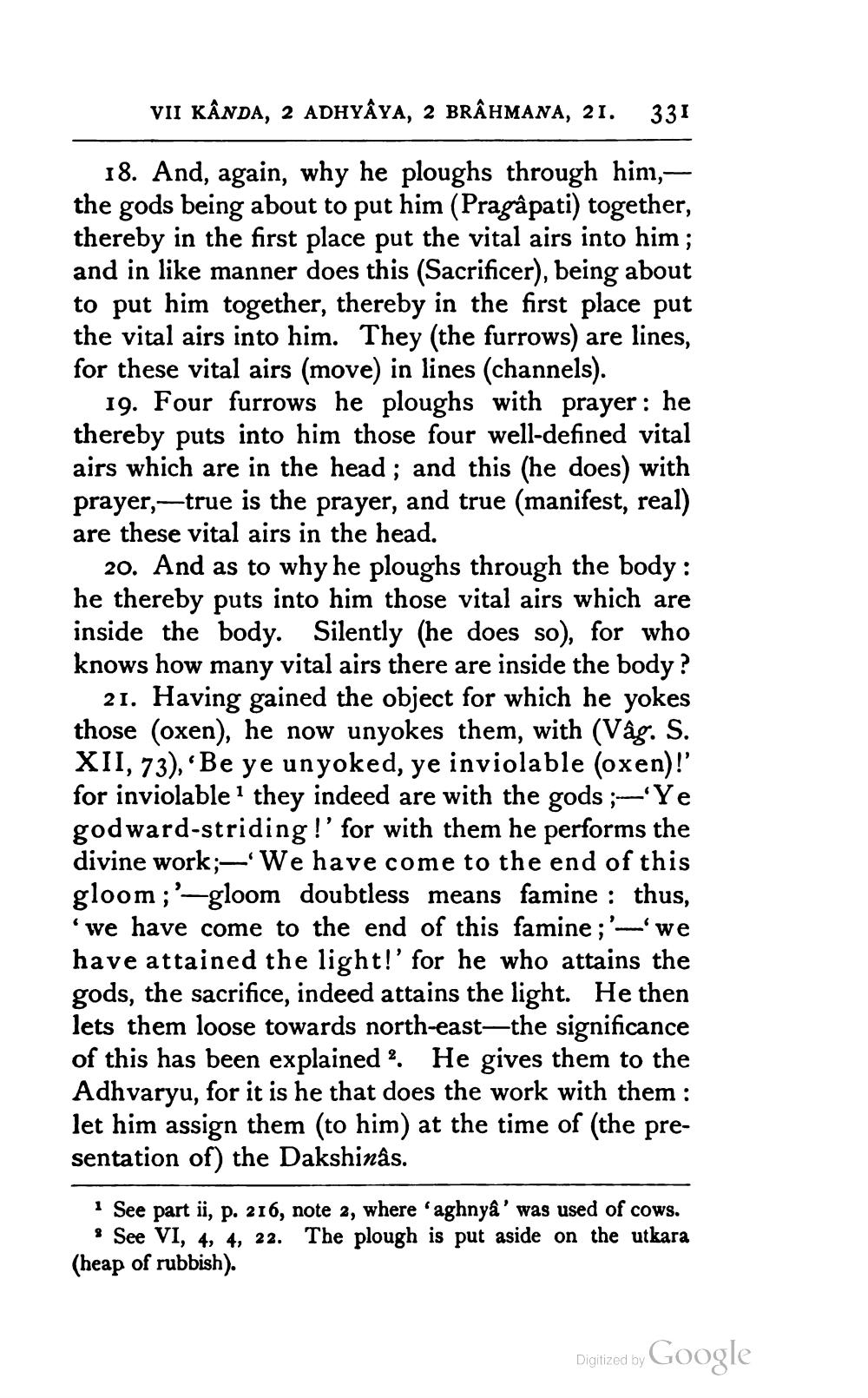________________
VII KÂNDA, 2 ADHYAYA, 2 BRÂHMANA, 21.
331
18. And, again, why he ploughs through him,the gods being about to put him (Pragâpati) together, thereby in the first place put the vital airs into him; and in like manner does this (Sacrificer), being about to put him together, thereby in the first place put the vital airs into him. They (the furrows) are lines, for these vital airs (move) in lines (channels).
19. Four furrows he ploughs with prayer : he thereby puts into him those four well-defined vital airs which are in the head; and this (he does) with prayer,-true is the prayer, and true (manifest, real) are these vital airs in the head.
20. And as to why he ploughs through the body: he thereby puts into him those vital airs which are inside the body. Silently (he does so), for who knows how many vital airs there are inside the body?
21. Having gained the object for which he yokes those (oxen), he now unyokes them, with (Vậg. S. XII, 73), Be ye unyoked, ye inviolable (oxen)!' for inviolable 1 they indeed are with the gods ;-Ye godward-striding !' for with them he performs the divine work;—'We have come to the end of this gloom;'-gloom doubtless means famine : thus,
we have come to the end of this famine; '-'we have attained the light!' for he who attains the gods, the sacrifice, indeed attains the light. He then lets them loose towards north-east—the significance of this has been explained 2. He gives them to the Adhvaryu, for it is he that does the work with them : let him assign them (to him) at the time of (the presentation of) the Dakshinas.
See part ii, p. 216, note 2, where 'aghnyâ' was used of cows. . See VI, 4, 4, 22. The plough is put aside on the utkara (heap of rubbish).
Digitized by Google




